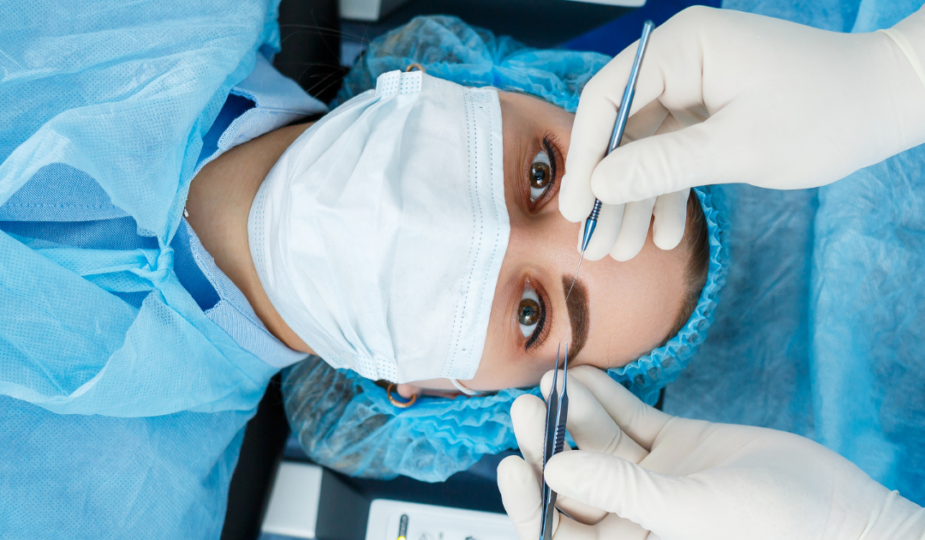Most people are excited to get laser eye surgery after being diagnosed with nearsightedness or farsightedness. However, the real excitement is usually before the surgery, knowing that their blurry vision will soon be gone. There’s just one problem: many experience blurry vision after the surgery, and this isn’t something many people talk about.
Losing your eyesight to eye surgery can be an unnerving experience, but you may be surprised how quickly you can resume a normal life. After LASIK surgery, your eyes should be fully healed within a few months’ time, and the temporary blurriness should fade over time. You shouldn’t expect to be able to drive right away, though, and you’ll want to avoid vigorous activities for at least two weeks after surgery.
Undergoing LASIK eye surgery is a comprehensive process that requires preparation and trust. From scheduling the surgery to the actual procedure, there are numerous considerations. Naturally, the prospect of surgery can evoke nervousness in you. Cost is another significant concern, prompting you to investigate whether your health insurance covers the procedure. If you happen to be based in the US, then you can check if you fall under Medicare. For instance, a medicare consulting service can help you to assess if your surgery is covered under the program or not.
Now, one of the biggest questions is what happens afterward. One of LASIK eye surgery’s most common side effects is blurry vision. While many LASIK patients notice a decrease in their vision immediately after surgery, some patients, especially those who have had LASIK more than once, experience blurry vision for a longer period of time.
Causes of Blurry Visions
While blurry vision may result from a number of causes, one of the most common is a condition known as presbyopia, which is commonly referred to as “near-sightedness” or “myopia.” While many of us may have known someone who complained of blurry vision, presbyopia is much more common than most people realize.
Blurred vision can also be caused by a number of health issues. However, some conditions, like cataracts, can cause blurring on their own, whereas other conditions, like diabetes, blur your vision as a result of diabetic eye disease. Blurred vision can also be a symptom of certain eye diseases, like glaucoma or optic nerve disease, as well as a symptom of other general health problems like high blood pressure or anemia.
What Is Laser Eye Surgery?
Laser eye surgery is a specialized medical treatment used to correct vision problems. The treatment involves cutting a flap into the eye, reshaping the cornea, and placing a mesh over it. All these procedures help to correct vision problems by changing the way light passes through your eye. Laser eye surgery is a permanent, safe, and effective treatment. However, it does have some side effects, and it is important to be aware of them before undergoing the treatment.
Millions of people undergo laser eye surgery to correct their vision every year. Laser eye surgery is a safe and effective way to treat eye conditions like nearsightedness, farsightedness, and astigmatism and correct vision that doesn’t meet minimum standards. This surgery can significantly improve quality of life by reducing dependence on glasses or contact lenses, enhancing visual clarity, and increasing overall confidence and comfort in daily activities.
This surgery can be a tad bit too expensive for folks who may not have adequate insurance coverage or financial resources readily available. In such circumstances, it is advisable to check if the hospitals has managed care contracting with insurance providers or if they offer financial assistance programs to help offset the cost.
As technology advances, more and more people are choosing laser eye surgery to improve vision. Laser vision correction is one of the most common surgeries done today, and laser-assisted in situ keratomileuses (LASIK) is the most popular. LASIK is a minimally invasive procedure that uses a laser to correct vision by changing the cornea’s shape. The eye surgeon places a flap in the cornea, removing the tissue from the front of the cornea and reshaping it. The flap is placed back over the cornea, and the vision correction is done.
LASIK is one of the best things to happen to vision correction, but it’s not without its downsides. If you’re considering LASIK or have already had it, it’s important to know that LASIK is not permanent. LASIK is a procedure that reshapes your corneas to correct vision, but it is normal for your vision to change again over time. Your eyes have a natural elasticity, and LASIK affects your corneas, which can change shape over time. You may experience blurry vision again or even experience vision that is worse than before, so this is a side effect to consider. That being said, keep in mind that laser eye surgery has risks, and a botched procedure could lead to a series of complications. There have been many instances where the vision of the patient got worse and resulted in total blindness. This can happen due to the surgeon’s carelessness, lack of skill, equipment failure or unexpected problems during surgery. If this does happen, victims can talk to a skilled lawyer or contact a law firm, like Schuerger Shunnarah Trial Attorneys (https://www.warforhou.com/) and sue the irresponsible surgeon in court to get compensation for their losses. However, it’s best to avoid this situation by carefully researching and choosing a very reputable and experienced surgeon, thoroughly discussing all potential risks and complications before the procedure, and making sure all necessary precautions and safety measures are in place. Taking these steps can help prevent such bad outcomes.
Now, when you finally make the decision to have LASIK eye surgery, you have to be prepared for the potentially long recovery period. LASIK requires a small corneal flap to be made during the surgery, which puts the eyes at risk for possible infection and potential blurred or distorted vision. However, most people experience only mild discomfort after their LASIK procedure.










